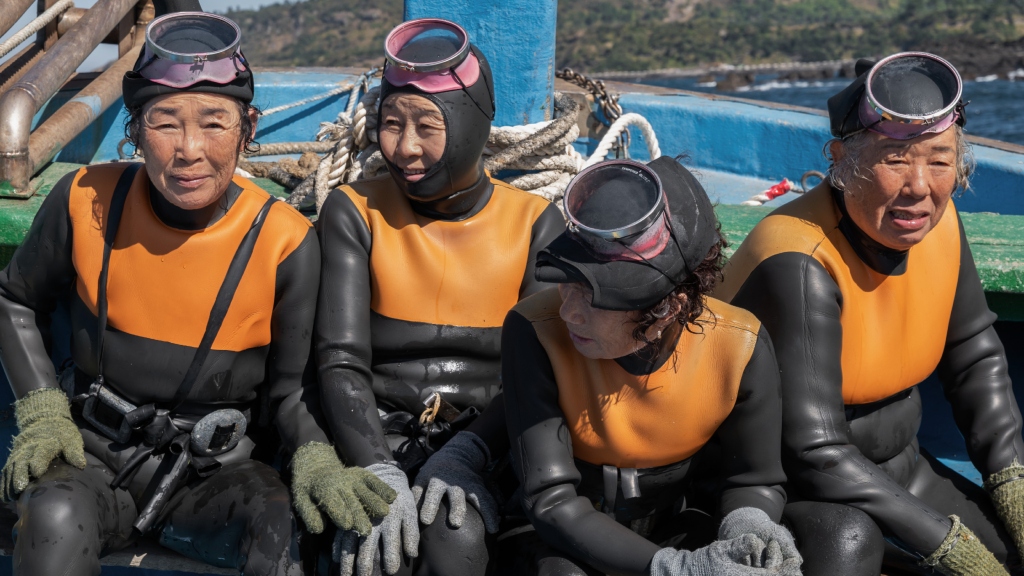Korean American filmmaker Sue Kim was only 8 when she first encountered Jeju Island’s centuries-old legends — Korea’s first female breadwinners who dive to great depths without oxygen tanks.
While their origins are unclear, one theory suggests that in the 17th century, heavy taxes on men’s labor shifted economic responsibility to women, forcing them to find work in the sea. Another posits that women’s higher body fat allowed them to stay in the water longer. Over time, the haenyeo formed democratic collectives, passing down their diving skills and creating a lineage of empowered women. Starting their training as young as 10, the haenyeo would learn to dive up to 65 feet (19.8 meters) deep, navigating dangerous waters while holding their breath for several minutes.
“They were bold, brash and boisterously comfortable with who they were as they put on their gear,” Kim recalls. “They had been described to me as ‘Korea’s mermaids,’ but seeing them with my own eyes, I thought, these are not exactly mermaids. This is a badass girl-gang. They had such a vibe. They were so strong, they occupied their space so fully, and they were so completely unapologetic about who they were. I was instantly enamored.”
Over the years, Kim witnessed how the haenyeo were both idealized and dismissed in a condescending way. But to Kim, the divers became her personal heroines and role models, inspiring her to embrace her own strength, passions and non-conformity without fearing judgment.
Kim went on to graduate from UC Berkeley, run an indie record label, work in advertising and create nonfiction films, such as the short “The Speed Cubers,” which garnered Critics…
Read the full article here





